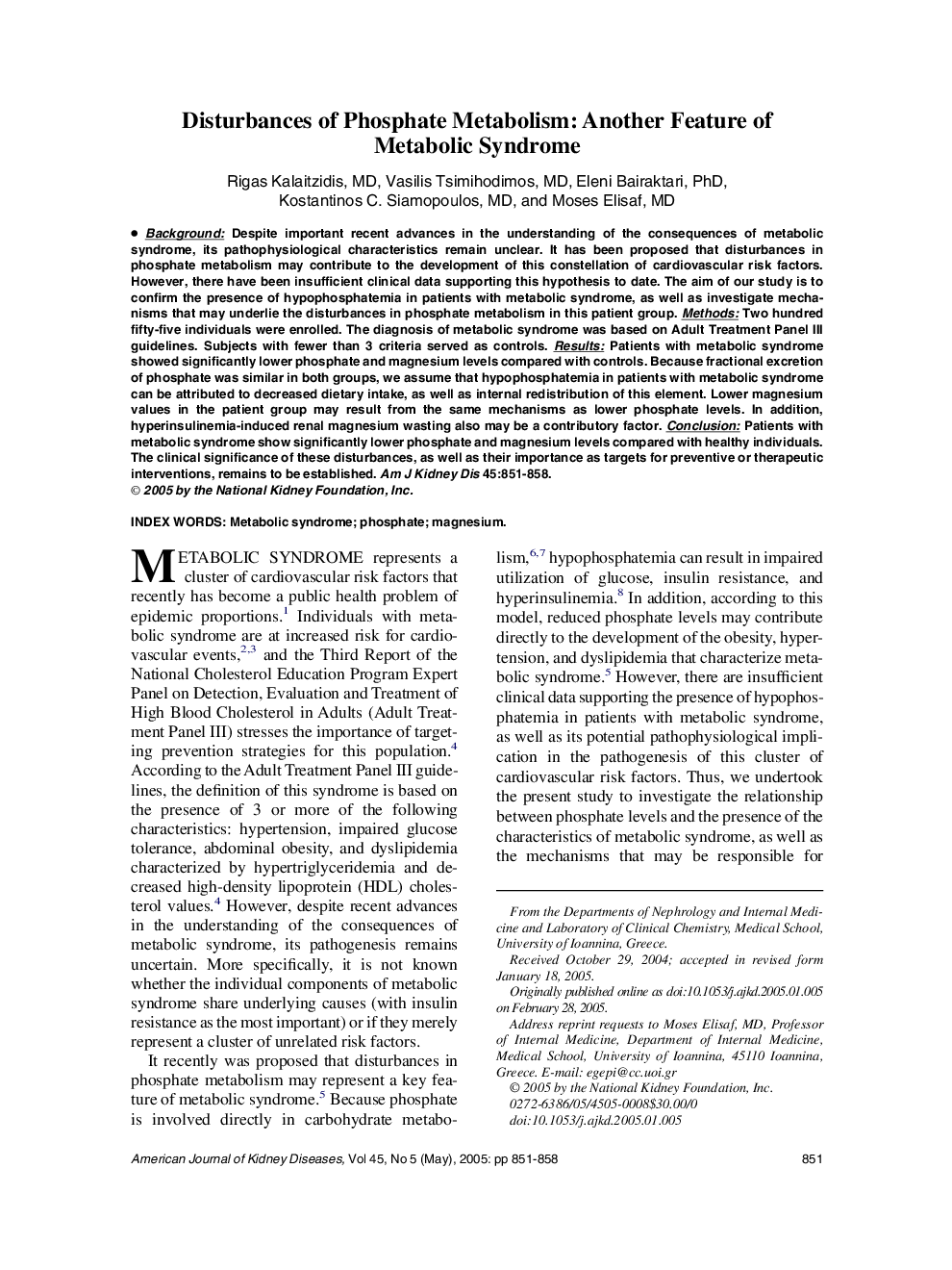| Article ID | Journal | Published Year | Pages | File Type |
|---|---|---|---|---|
| 10047604 | American Journal of Kidney Diseases | 2005 | 8 Pages |
Abstract
Background: Despite important recent advances in the understanding of the consequences of metabolic syndrome, its pathophysiological characteristics remain unclear. It has been proposed that disturbances in phosphate metabolism may contribute to the development of this constellation of cardiovascular risk factors. However, there have been insufficient clinical data supporting this hypothesis to date. The aim of our study is to confirm the presence of hypophosphatemia in patients with metabolic syndrome, as well as investigate mechanisms that may underlie the disturbances in phosphate metabolism in this patient group. Methods: Two hundred fifty-five individuals were enrolled. The diagnosis of metabolic syndrome was based on Adult Treatment Panel III guidelines. Subjects with fewer than 3 criteria served as controls. Results: Patients with metabolic syndrome showed significantly lower phosphate and magnesium levels compared with controls. Because fractional excretion of phosphate was similar in both groups, we assume that hypophosphatemia in patients with metabolic syndrome can be attributed to decreased dietary intake, as well as internal redistribution of this element. Lower magnesium values in the patient group may result from the same mechanisms as lower phosphate levels. In addition, hyperinsulinemia-induced renal magnesium wasting also may be a contributory factor. Conclusion: Patients with metabolic syndrome show significantly lower phosphate and magnesium levels compared with healthy individuals. The clinical significance of these disturbances, as well as their importance as targets for preventive or therapeutic interventions, remains to be established.
Keywords
Related Topics
Health Sciences
Medicine and Dentistry
Nephrology
Authors
Rigas MD, Vasilis MD, Eleni PhD, Kostantinos C. MD, Moses MD,
